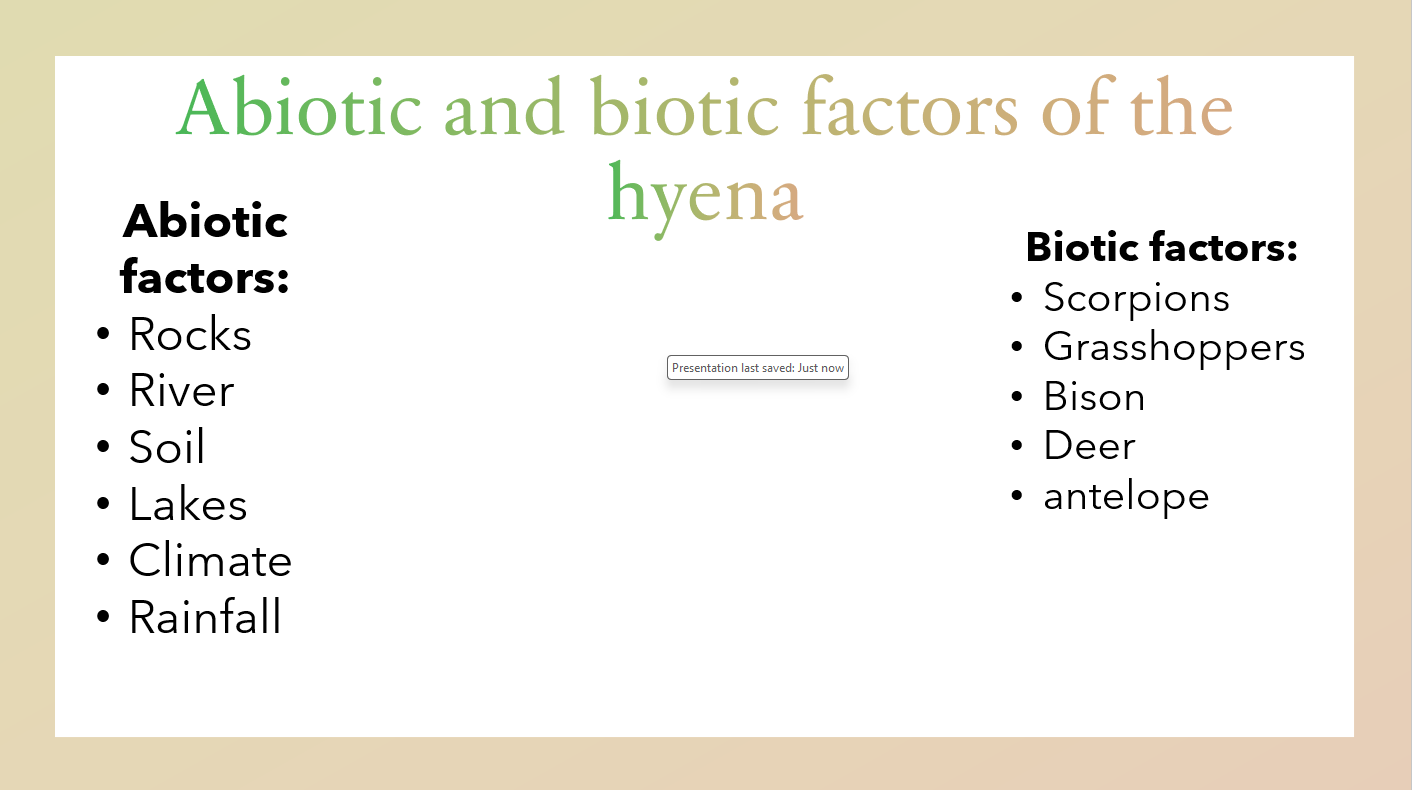What are the abiotic and biotic factors of the hyena?

Understand the Problem
The image lists abiotic and biotic factors that affect hyenas, categorizing elements like rocks, rivers, soil, and various organisms. It aims to provide a clear separation between non-living (abiotic) and living (biotic) components of the environment affecting hyenas.
Answer
Abiotic: rocks, river, soil, lakes, climate, rainfall. Biotic: scorpions, grasshoppers, bison, deer, antelope.
Abiotic factors include rocks, rivers, soil, lakes, climate, and rainfall. Biotic factors include scorpions, grasshoppers, bison, deer, and antelope.
Answer for screen readers
Abiotic factors include rocks, rivers, soil, lakes, climate, and rainfall. Biotic factors include scorpions, grasshoppers, bison, deer, and antelope.
More Information
Hyenas are influenced by various non-living (abiotic) factors like climate and water sources, while interacting with living (biotic) factors such as other animals in their ecosystem.
Tips
A common mistake is confusing abiotic and biotic factors. Remember, abiotic refers to non-living environmental aspects, while biotic refers to living organisms.
Sources
- Abiotic and Biotic Factors - Tropical grasslands/savannas - Weebly - tropicalgrasslandssavannas.weebly.com
- Striped Hyena - Brannigan Willige - Prezi - prezi.com
AI-generated content may contain errors. Please verify critical information